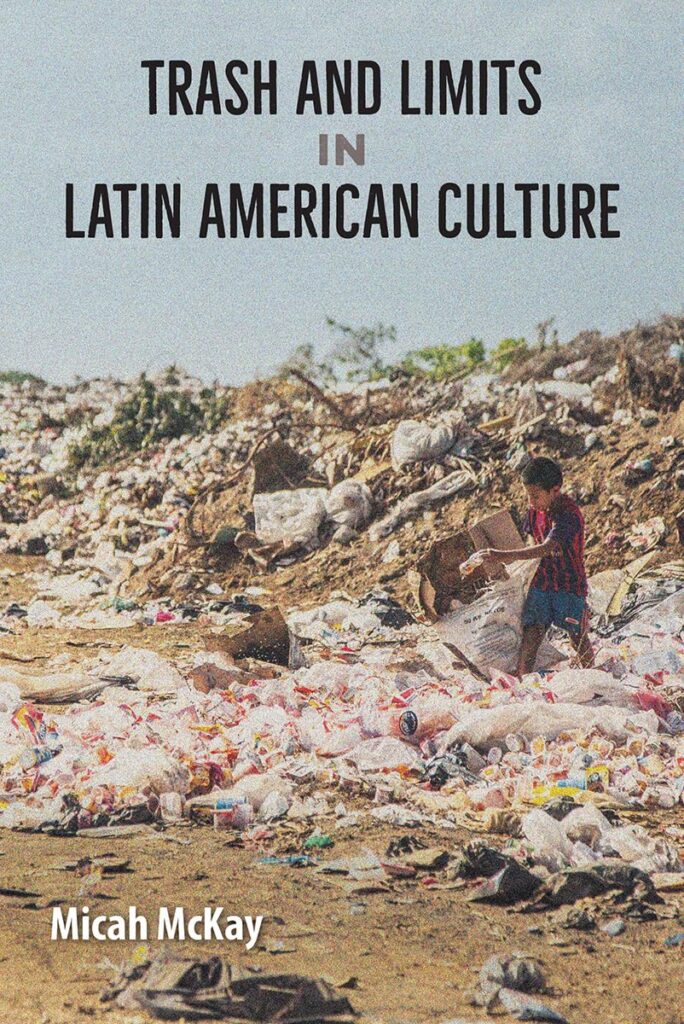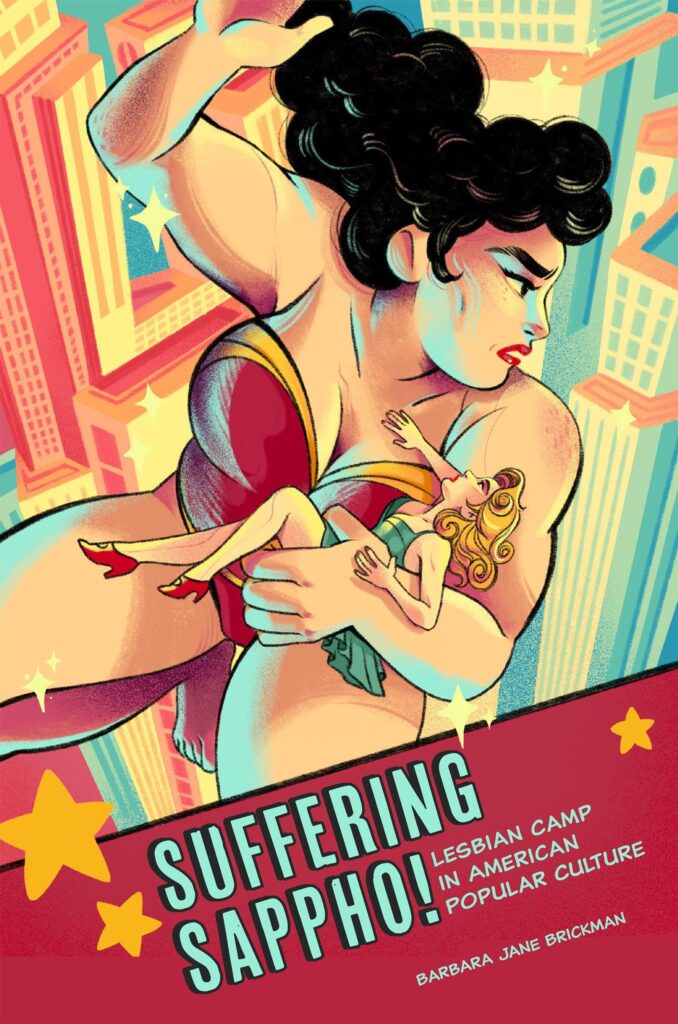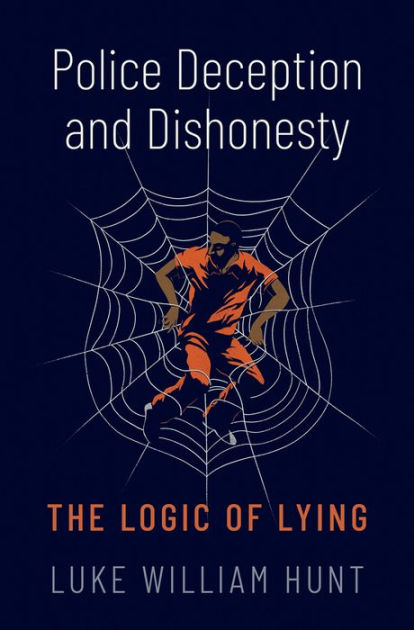Whether it’s escaping into a captivating novel or seeking new knowledge and skills, reading provides access to a wealth of information and the opportunity to expand one’s horizons. As you relax during the summer months, enjoy these books written by six A&S faculty from several departments:

Trash and Limits in Latin America Culture
By Micah McKay (Modern Languages & Classics, mdmckay1@ua.edu)
The consolidation of consumer culture in Latin America over the last half century has made dealing with trash a pressing concern across the region. Whether it be landfills exceeding their capacity, economic downturns forcing people to survive on scavenging, or garbage littering city streets, waste makes its presence known and raises important social and environmental questions. Trash and Limits in Latin American Culture shows how writers and filmmakers from the region provocatively engage with trash and the problems it poses, opening up a space of reflection on what it means to be human, the possibilities for building community amidst social and environmental catastrophe, gendered notions of labor and care, and the pitfalls of neoliberal environmentalism. Far from being a valueless leftover or an off-putting substance to be done away with efficiently, trash is a material and discursive force that we ignore at our own peril. This book models productive ways of paying heed to trash and shows how Latin America is a key site for contemplating the multiple effects of the waste we produce.
Nola Face: A Latina’s Life in the Big Easy
Brooke Champagne (English, brchampagne@ua.edu)
Brooke Champagne explained, “My memoir-in-essays Nola Face tells stories from my mixed-race upbringing and the Ecuadorian imp that was my grandmother, Lala, who taught me to sneak out of the house for 3 a.m. French Quarter adventures, to steal Smurfettes and other ephemera from drugstores, to lie to strangers in translation, and to translate the deepest, darkest connotations of the words “fear” and “fun.” More broadly, the book traces the evolutions of my girlhood and reluctant adulthood of competing languages, ethnicities, memories, politics, and class constraints, all against the backdrop of boozy New Orleans living. If the “traumadic” stories in this book fail to make readers both laugh and cry, often at the same time, I will not have done my job. I may have to start over.”

Suffering Sappho!: Lesbian Camp in American Popular Culture
Barbara Brickman (New College, bjbrickman@ua.edu)
“Offering the first major consideration of lesbian camp in American popular culture, Suffering Sappho! traces a large-than-life lesbian menace across mid-century media forms to propose five prototypical queer icons—the sicko, the monster, the spinster, the Amazon, and the rebel—during what is often considered the most repressive and conservative era of the twentieth century,” Dr. Brickman outlined. “On the pages of comics and sensational pulp fiction and the dramas of television and drive-in movies, I uncover evidence not just of campy sexual deviants but of troubling female performers, whose failures could be epic but whose subversive potential could inspire.”
Race and Respectability in an Early Black Atlantic
Cassander Smith (English, clsmith17@ua.edu)
Dr. Smith described, “I first conceived of Race and Respectability in 2012 after the shooting death of the Florida teen Trayvon Martin. The heartbreak his family suffered, and continues to suffer, joined a collective, cultural grief, a trauma, for Black America. The more conservative element among us dealt with that grief by clinging to a narrative of respectability politics, which is the term we give to the form of self-policing that occurs when members of an oppressed group seek to model (and condemn those in the group who do not model) the cultural and social mores of a dominant group with the belief that doing so will eliminate the oppression and promote equality. In the case of Martin, some folks in Black communities critiqued Martin’s dress and debated whether the hoodie he wore that evening portended some nefarious intent. Mainstream media inundated us with stories about Martin’s supposed past criminal proclivities, like possession of marijuana that reportedly led to a school suspension. As I listened to people try to explain, if not outright justify, the killing, I was confronted by the sheer power of respectability politics to deem Black lives, especially young ones, as worthy of death if those lives do not adhere to arbitrary standards of conduct. I also saw respectability politics as an operation of self-control, a deep, abiding need by Black folk to believe that we can exert some measure of power to mitigate the effects of white supremacy. What is the root source of this mind-set? How has it shaped Black American experiences and cultural expressions over the centuries? Race and Respectability presents my answers to these questions.”

Police Deception and Dishonesty: The Logic of Lying
Luke William Hunt (Philosophy, lwhunt@ua.edu)
In Police Deception and Dishonesty – The Logic of Lying, Professor Hunt draws upon both philosophy and his experience as a former FBI Special Agent. “It’s intuitive to think that providing security is impossible without using deception and dishonesty during interrogations, undercover operations, pretextual detentions, and other common scenarios,” Hunt stated. “But there are compelling reasons to think that the police’s widespread use of proactive deception and dishonesty is inconsistent with fundamental norms of political morality regarding fraud and the rule of law,” Hunt added. Although there are times and places for dishonesty and deception in policing, Hunt’s book evocatively illustrates why those times and places should be much more limited than current practices suggest.
Searching for Home Waters: A Brook Trout Pilgrimage
By Michael Steinberg (New College & Geography, mksteinberg@ua.edu)
Bringing together science, environmental history, interviews and personal reflections along his “pilgrimage,” Dr. Steinberg’s Search for Home Waters paints a portrait of the brook trout’s past and present in eastern North America. Considering the legacy of logging, mining, suburban development, climate change, and other impacts, it is no wonder that to search for healthy contemporary “fishscapes” is to navigate harsh rapids.